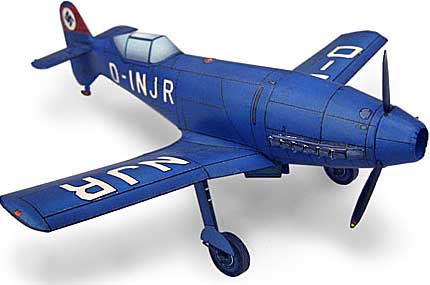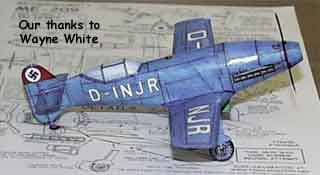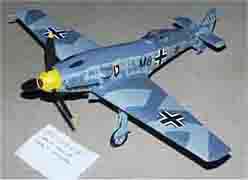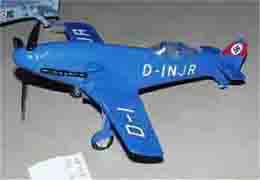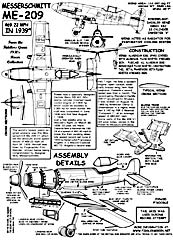
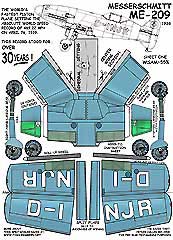
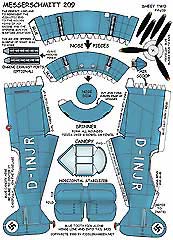
This ME-209 Nazi Racer is truly Awesome!!
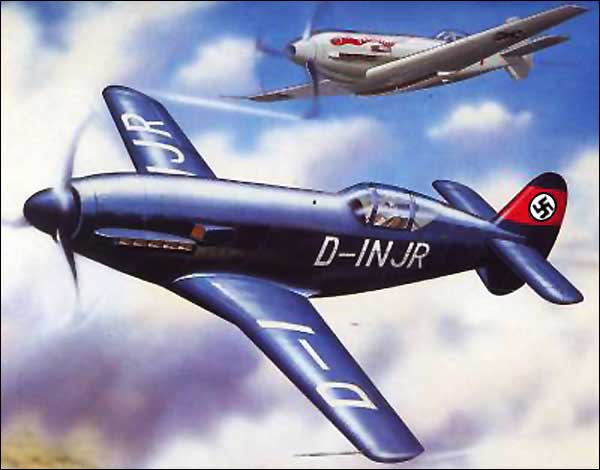
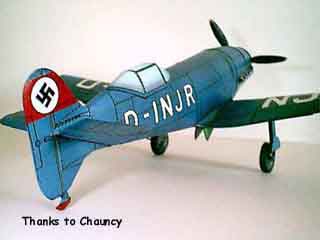
This ME-209 paper model was added to the Fiddlers Green 1930s Racing Collection as the final example. It seems to be the best one for the job.
The ME-209 took the Air Racing business by storm by flying 469.22 mph in 1932.. setting a long-standing record not broken for over 30 years!
Hitler wouldn't have had it any other way! In fact he wanted to name the ME-109 to raise eyebrows around the world.
Another couple of things of interest, the ME 209 was a high speed development of the Me 109, made specifically to get the high speed record, but it achieved its record on 26th April 1939, The German propaganda ministry called it the Me 109R and made out it was an Me 109 to make out it was just an ordinary production machine, when it was highly adapted. Tim Harris (5/06)
This Messerschmitt Me 209 is the model that won the FG Modeling Madness (FGMM) 2010 best in class prize. Thanks to Chris Walas who donated his $20 prize money toward modeling materials for hospitalized vets!! |
|
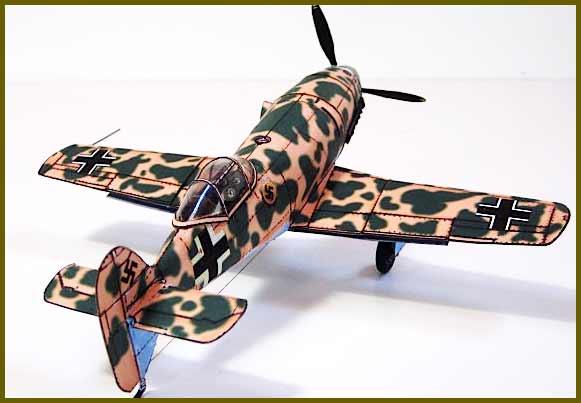 |
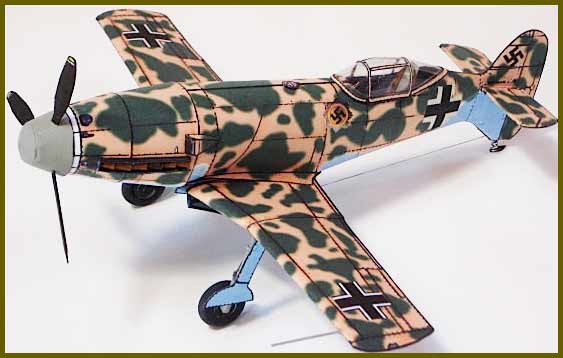 |
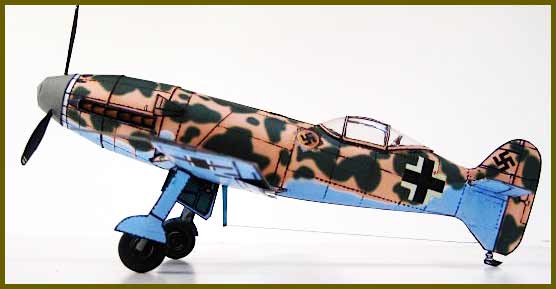 |
This one was a training exercise in recoloring for me. There never was a tropical scheme for the 209, but I’ve always liked the trop schemes, so I gave it a go. I also did an interior and a few other mods which helped a lot. I like the look of this plane and even if this scheme is a fantasy, it’s a good match for the plane, I think. -Chris |
Messerschmitt Me 209 V1
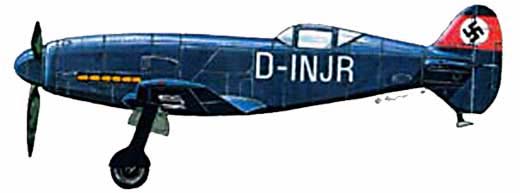
The world's fastest piston engine airplane was this Messerschmitt Me 209 V1 which set the absolute world speed record of 469.22 mph on April 26, 1939. This aircraft was flown by Flugkapitan Fritz Wendel, (shown below being congratulated by designer Willy Messerschmitt). Power was a specially designed Daimler-Benz DB 601 ARJ twelve cylinder inverted liquid cooled engine of 1,800 hp which could be boosted to 2,300 hp for short bursts. Aircraft was completed in June 1938 and first flew August 1, 1938.
Just a few weeks prior to Wendel's flight, on March 30, 1939, 22-year old Hans Dieterle flew a Heinkel He 100 V8 at a speed of 463.92 mph to break the then existing absolute speed record set June 2, 1933 by Italian pilot Francesco Angello in a Macchi-Castoldi MC-72. Angello's record was 440.7 mph. He flew a tandem engine, open cockpit, externally braced wing, twin float seaplane. Dieterle's record lasted less than a month.
The record set by Wendel in the Me 209 V1 would last for 30 years. It was broken on August 16, 1969 by American Darryl G. Greenamyer in a highly modified 3,100 hp F8F-2 Bearcat "Conquest 1", at an average speed of 483.041 mph. Some parts of the Me 209 V1 still exist today, stored in the Polish Air Museum at Krakow.
The ME-209 Speed Record stood for over 30 years until August 16,
1969 when an American named Darryl G Greenamyer broke it by flying
483.041 mph in a highly modified F8F-2 Bearcat.
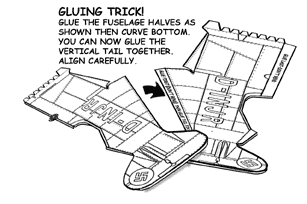
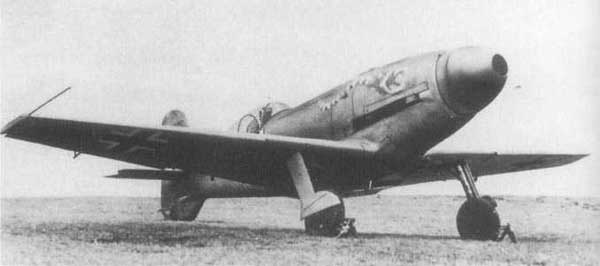
The Me 209 was intended from the outset as a record breaker but the basic fuselage was used in the otherwise totally different Me 209 V4 in the effort to build a Bf 109 successor. The snake was added as a bit of propaganda.
In the years between 1935, when Germany first revealed formation of the Luftwaffe, and the outbreak of World War II, Adolf Hitler was most anxious to impress upon the world the capability of the fighter aircraft that equipped his new air force. This resulted in design of the Messerschmitt Me 209 to be used to establish a new absolute world speed record.
With only superficial resemblance to the Bf 109, the Me 209 was tailored around a specially-built Daimler Benz DB 601ARJ engine with a take-off rating of 1342 kW (1 800 hp), which could be boosted to a peak of 2,300 hp for very short periods. This capability proved sufficient for the Me 209 to set a new record, Flugkapitan Fritz Wendel flying the first specially-prepared proto type on 26 April 1939 at an average speed of 469.22 mph.
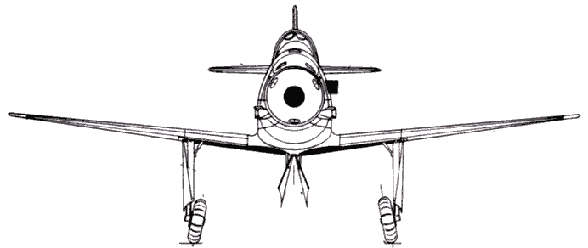
At this point the German propaganda ministry stepped in, details for ratification submitted to the FAI identifying the record breaking aircraft as the Messerschmitt Me 109R in an attempt to convince other nations that the record had been gained by a variant of the Luftwaffe's new fighter. Nevertheless, the record stood for just over 30 years, but although attempts were made by the Messerschmitt company to develop a new fighter based on the ME-209 design, Me 209A prototypes flying later in the war, the program was abandoned.
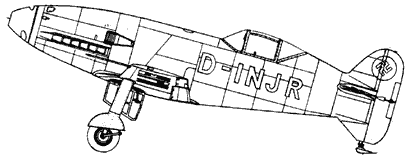
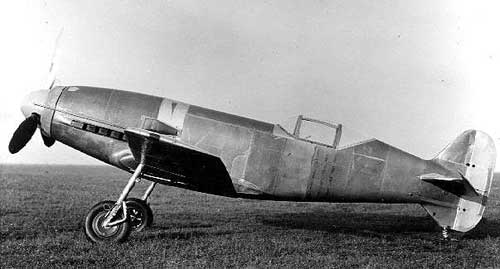
The ME-209 was flown to it's record by Chief
Messerschmitt Test Pilot FlugKapitan Fritz Wendel and is being
congratulated by designer Willy Messerschmitt. |
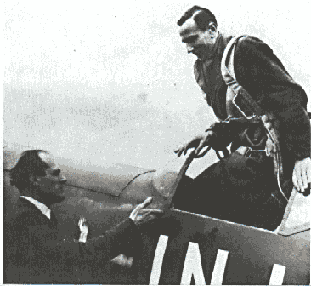 |
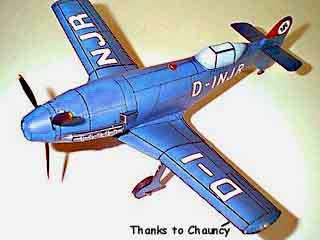 |
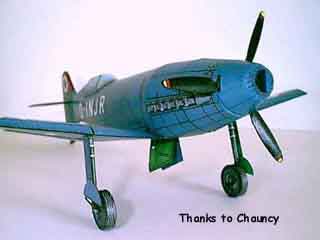 |
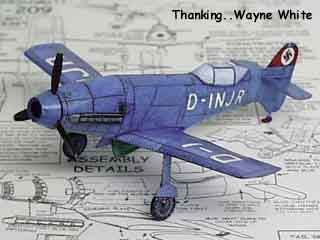 |
|
|
They are paper ( really a file folder ). Props,spinners & wheels are plastic. Paint is Testers Model Master, markings for the racer are enlarged directly from your model, except for tail swastika and band. Markings for the fighter are from the decal box.) |
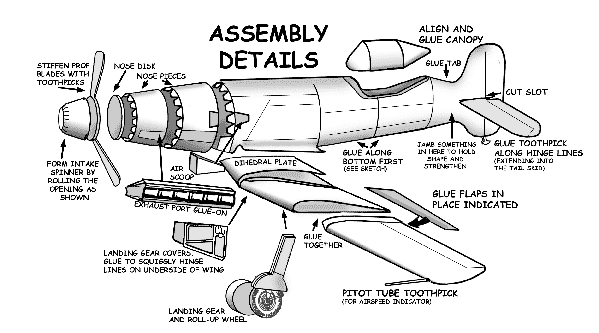
Specifications for the Messerschmitt Me 209
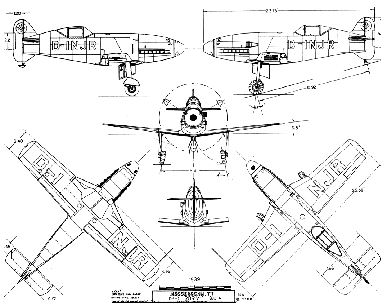 |
Length: 23 ft 9 in |
